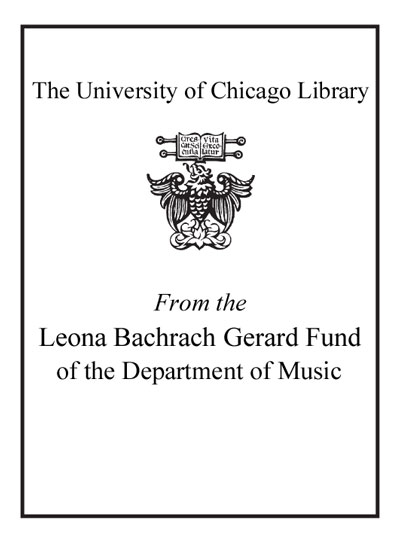Review by Choice Review
Woody Guthrie was a musical genius. He was said to have written a song every morning before breakfast. In fact, as Kaufman (American literature and culture, Univ. of Central Lanchashire, UK) notes in this study of Guthrie's political radicalism, Guthrie wrote at least 3,000 songs during his lifetime, including more than 25 during his famous one-month visit to the Columbia River dam project during the 1930s. This book is not at all a standard biography; in fact, it assumes the reader knows the basic outlines of Guthrie's life. Rather, it is an attempt to wash away the myth of Guthrie as the "dust bowl balladeer" who wrote and sang patriotic songs that celebrated the US. In fact, Guthrie was a Communist Party sympathizer, even to the extent that he approved of the 1939 Nazi-Soviet Pact, and he viewed capitalism as his bitter enemy. Kaufman argues that almost everything Guthrie did was colored by his political radicalism, and he points out that the now-iconic "This Land Is Your Land" has been stripped of its radical later verses. This volume has much to offer specialists. Summing Up: Highly recommended. Upper-division undergraduates through faculty. R. J. Goldstein University of Michigan at Ann Arbor
Copyright American Library Association, used with permission.
Review by Library Journal Review
Although Joe Klein's Woody Guthrie and Ed Cray's Ramblin' Man capture Woody Guthrie's freewheeling personality and his empathy for the poor and downtrodden, Kaufman (American literature & culture, Univ. of Central Lancashire, UK; American Culture in the 1970s) is the first to portray in detail Guthrie's commitment to political radicalism, especially communism. Drawing on previously unseen letters, song lyrics, essays, and interviews with family and friends, Kaufman traces Guthrie's involvement in the workers' movement and his development of protest songs. He portrays Guthrie as a committed and flawed human immersed in political complexity and harrowing personal struggle. VERDICT Since most of the stories in Kaufman's appreciative portrait will be familiar to readers interested in Guthrie, it is best for those who know little about the singer to read first his autobiography, Bound for Glory, or as a next read after American Radical. Recent titles with similar appeal, Dorian Lynskey's 33 Revolutions per Minute: A History of Protest Songs, from Billie Holiday to Green Day and John Szwed's Alan Lomax: The Man Who Recorded the World, may attract a broader audience.-Henry L. Carrigan Jr., Evanston, IL (c) Copyright 2011. Library Journals LLC, a wholly owned subsidiary of Media Source, Inc. No redistribution permitted.
(c) Copyright Library Journals LLC, a wholly owned subsidiary of Media Source, Inc. No redistribution permitted.
Review by Kirkus Book Review
Overdue rediscovery of folk music's great agitator."I was born to be a reddical," wrote Woody Guthrie (191267) at age 40. His father was a socialist-hating, small-town politician, but Guthrie learned during the 1930s Dust Bowl to identify with America's underclass, writes Kaufman (American Literature/Univ. of Central Lancashire, England;American Culture in the 1970s, 2009, etc.) in this deft exploration of the lyrics and activism of a singer-songwriter whose anti-capitalist radicalism has been buried in romantic celebration of "the Dust Bowl Troubadour." Few Americans realize that "This Land Is Your Land," written out of his strong dislike of Irving Berlin's sanctimonious "God Bless America," contains verses condemning private property and challenging the authoritarian state. The author uses many previously unpublished materials from the Woody Guthrie Archives to show the singer's efforts to expose "the system" in songs, poems and articles (his "Woody Sez" column ran for years in the People's Daily World). A Communist sympathizer, he was not one for political theory: "His greatest artistic and critical strength," writes Kaufman, was giving radical theory a human face. Beginning with his political awakening by California actor-activist Will Geer, who introduced Guthrie to progressive causes, the author chronicles the singer's increasing militancy during the Popular Front and Cold War eras, including work with Lee Hays, Pete Seeger and many others in left-wing circles. By 1956, when he was committed to a psychiatric hospital with neurological disintegration from Huntington's disease, the singer had become the "new patron saint of American folk music." Guthrie wrote more than 3,000 songs that exist in archives; others were never written down. His political edge was lost in the mass-market folk-music revival of the 1960s, but now flourishes in the work of progressive musicians from Bruce Springsteen to Ani DiFranco and Emmylou Harris.Not likely to hold wide appeal, but a solid choice for scholars and folk-music lefties.]] Copyright Kirkus Reviews, used with permission.
Copyright (c) Kirkus Reviews, used with permission.
Review by Choice Review
Review by Library Journal Review
Review by Kirkus Book Review

